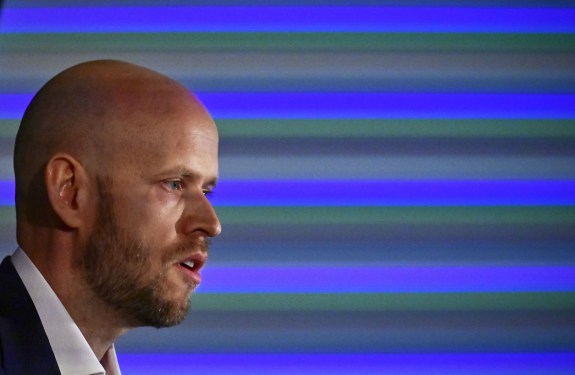In August, Blackstone was reportedly looking to allocate $2 billion towards lending to startups and tech companies. However, venture debt lenders remained skeptical about the asset class’s potential, questioning whether it was worth the effort for large asset managers like Blackstone to participate. Now, with BlackRock’s acquisition of Kreos Capital, a London-based venture debt lender, the landscape has changed.
BlackRock Enters Venture Debt: A Surprising Move
Last week, BlackRock announced its intention to acquire Kreos Capital, a move that may come as a surprise to many in the industry. With its massive $106 billion market cap, BlackRock is one of the largest asset managers globally. The acquisition gives BlackRock access to Kreos’ extensive portfolio of over 750 transactions and €5.2 billion (approximately $5.68 billion) worth of loans originated across Europe and Israel.
The terms of the deal were not disclosed, and BlackRock’s spokesperson declined to comment on the matter beyond the official announcement. Kreos Capital also couldn’t be reached for comment.
Why Venture Debt?
Venture debt is an attractive asset class that allows investors to participate in venture capital without assuming excessive risk. By lending to startups at a later stage, venture debt lenders can benefit from lower default rates compared to early-stage equity investments. However, the logistics of underwriting smaller loans for several million dollars may be challenging for large asset managers like BlackRock.
Buying Existing Capacity: A Smarter Approach
In this context, buying an existing fund, such as Kreos Capital, makes more sense than trying to build a venture debt strategy from scratch. This approach allows BlackRock to tap into the established network and expertise of Kreos, reducing the risk associated with entering a new market.
By acquiring Kreos, BlackRock gains access to a proven business model and existing relationships with startups in Europe and Israel. This can help the asset manager identify high-growth companies that may be ripe for acquisition or IPOs, aligning with its existing strategies in hedge funds and public equity.
What Does This Mean for Venture Debt?
The entry of BlackRock into venture debt marks a significant shift in the market. As one of the largest asset managers globally, its involvement can bring scale and credibility to the industry. While some may be concerned about the potential consequences of large-scale investments in venture debt, it’s essential to remember that more options are generally beneficial for startups.
A Growing Source of Nondiluted Capital
BlackRock’s venture debt strategy may also create opportunities for established startups seeking nondiluted capital. By accessing this new source of funding, companies can continue growing without diluting ownership or control.
The Future of Venture Debt: An Industry in Flux
As BlackRock enters the venture debt market, it’s likely that other large asset managers will follow suit. The acquisition of Kreos Capital is a significant development in the industry, and its implications are far-reaching.
BlackRock’s venture debt aspirations may lead to increased competition among lenders, driving innovation and efficiency within the sector. As startups continue to grow and evolve, they’ll benefit from the expanded range of funding options available.
Conclusion
The acquisition of Kreos Capital by BlackRock marks a significant turning point in the venture debt market. As one of the largest asset managers globally enters this space, it’s likely that the industry will experience increased growth and competition. The benefits for startups are clear: more options, nondiluted capital, and access to established networks and expertise.
In an ever-changing landscape, the entry of BlackRock into venture debt is a positive development, signaling the continued growth and evolution of this asset class.
About the Author
Rebecca Szkutak is a senior reporter at TechCrunch, covering venture capital trends and startups. With extensive experience in the industry, she provides insightful analysis on market developments and emerging technologies.






